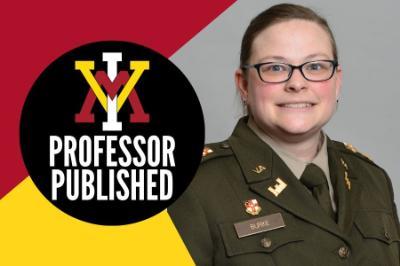Biology
The biology department provides focused studies in the biological sciences to prepare students for careers in medicine and other health professions, field work related to conservation and ecology and other technical pursuits including graduate school. Our flexible curriculum allows for specializations that match cadet interests.
Our department houses a diverse and highly qualified faculty including the post-wide pre-health advisor who guides interested cadets into the wide range of health professions.
Our faculty believe interaction in the classroom, laboratory, and on an individual basis is critical in the development of successful biology majors. Class sizes are small, laboratories accompany most courses, advising is individual, and undergraduate research is encouraged.
What you can do with a biology degree:
- Professional schools: medical, dental, veterinary or graduate
- Health professions: physical or occupational therapy, pharmacy, nursing, physician’s assistant, optometry
- Other careers: forensics, laboratory or environmental technician, pharmaceutical sales, conservation or wildlife officer, military intelligence, biosecurity, science education, medical transcription, environmental or patent law
- The possibilities are endless
Degrees and Programs
Major(s): Biology
Degree(s):
- Bachelor of Arts (B.A.) - Overview | Requirements & Electives
- Bachelor of Science (B.S.) - Overview | Requirements & Electives
Minor(s):
Opportunities:
- Pre-med focus
- Medical school partnership to allow guaranteed acceptance for qualified cadets
- Honors in Biology
- Summer fellowship support for undergraduate research
- Department endowment monies for cadet research
- Study abroad programs
Biology in the News
Find out more about the department's cadets and faculty in recent VMI news.

Behind the Balance: Sydney Smith ’26 — Keydet Water Polo
From long hours in the pool to the demands of the Corps, Sydney Smith ’26 has built a second family, taken on leadership roles, and pushed herself to grow in every arena.

Biology Professor Publishes Article
Maj. Alison Burke, assistant professor and health professions advisor in the Department of Biology at Virginia Military Institute, recently had a research article published in PLOS One, a peer-reviewed scientific journal.
.svg)
.png)

